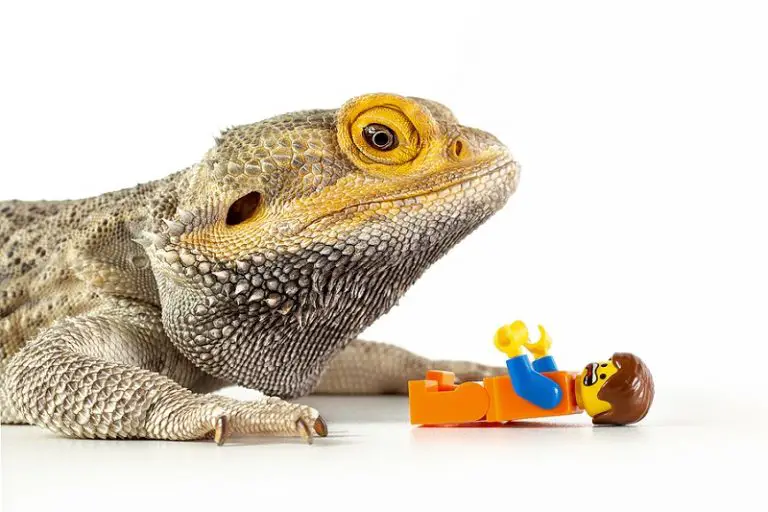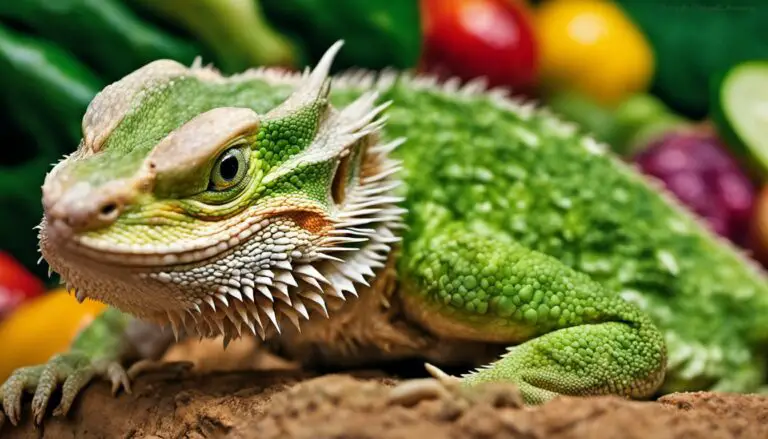Can Bearded Dragons Eat Carrots: The Raw Deal
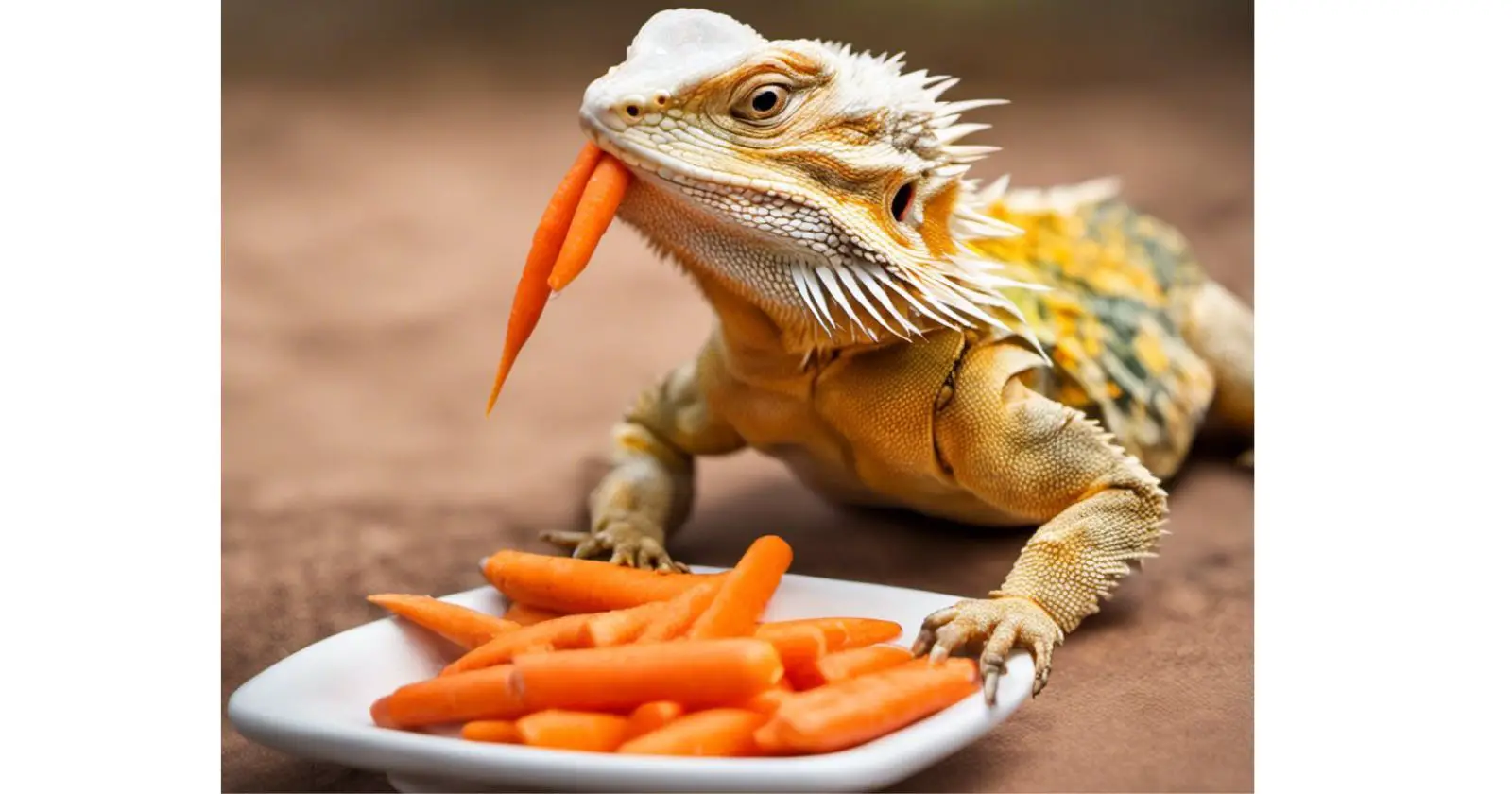
“Can Bearded Dragons Eat Carrots?” is a question that might cross the mind of every bearded dragon owner. Understanding your pet’s dietary needs is crucial, and carrots are appealing and nutrient-rich with their vibrant color and crunch. This article will delve into the specifics of incorporating carrots into your bearded dragon’s diet, discussing the suitable types, their nutritional benefits, and the most effective ways to serve them to your scaly friend.
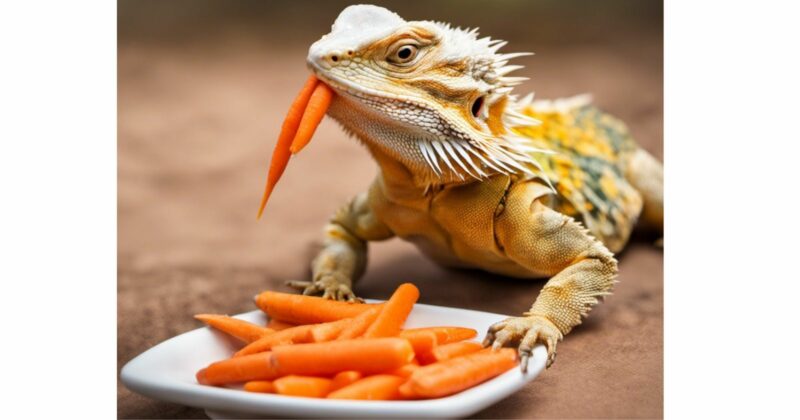
From raw to cooked carrots, carrot tops, and peels, we will cover every aspect of this popular vegetable and how it can be incorporated into your bearded dragon’s diet to ensure its health and well-being. So let’s begin our journey through the fascinating world of can-bearded dragons who eat carrots and bearded dragons!
Contents
Can Bearded Dragons Eat Carrots?
- Yes, your Beardie can eat carrots!
- Bearded dragons should be fed cooked carrots no more than twice a week as part of a balanced diet.
Raw and cooked carrots offer advantages, but it is important to understand their differences for optimal nutrition.
Carrots are nutritious; Overconsumption can lead to potential health risks such as vitamin A toxicity or calcium deficiency.
Carrot Consumption for Bearded Dragons
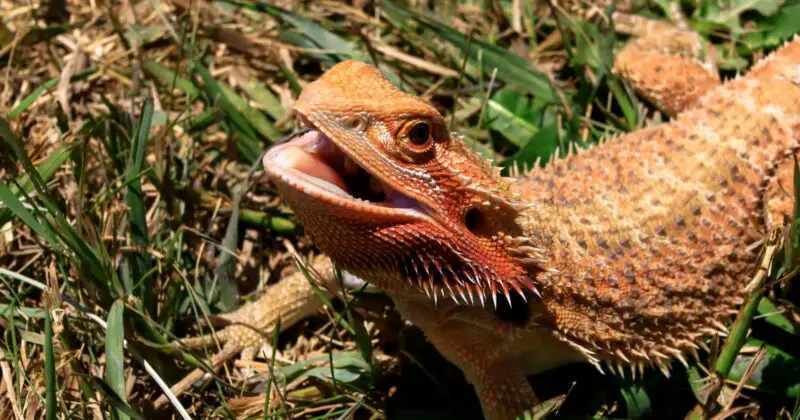
Carrots play an important role in a bearded dragon’s diet, providing essential minerals and nutrients that contribute to their health and well-being. Raw carrots, in particular, offer the most advantageous nutrition for bearded dragons and should be considered as part of a balanced diet.
However, it is crucial to feed carrots in moderation to avoid potential health risks associated with overfeeding, such as vitamin A toxicity or calcium deficiency. To ensure a healthy and balanced diet for your bearded dragon, it is recommended to feed cooked carrots no more than once or twice a week as part of a varied diet. This will help provide the necessary nutrients without causing any health complications.
Types of Carrots Suitable for Bearded Dragons
Bearded dragons can safely consume carrots of any color, including red, purple, orange, and white. To ensure optimal enjoyment and nutrition, it is essential to prepare the carrots properly. Grating or cutting them into small pieces before feeding will make it easier for your bearded dragon to consume and digest the carrots.
When it comes to raw vs. cooked carrots:
Cooked carrots are tender and more easily digested, which is why many people prefer to eat cooked carrots
Raw carrots are crispier and contain more dietary fiber
Carrot tops are a great source of vitamins A, C, and K
Carrot peels offer a good amount of fiber
Nutritional Value of Carrots for Bearded Dragons
Carrots are an excellent source of essential vitamins, such as beta-carotene (which is converted to vitamin A in the body), vitamin K, and vitamin C, making them a nutritious and safe addition to a bearded dragon’s diet. They are packed with fiber and vitamin A, which can help support a robust immune system, reduce cholesterol, promote clear vision, and enhance the overall well-being of your pet dragon.
It is important to seek a veterinarian’s opinion before feeding carrots to a bearded dragon. This is especially true if they are already receiving Vitamin A, beta carotene supplements, or multivitamins that may contain Vitamin A or beta carotene. While carrots do not provide adequate calcium, they can still be a valuable part of a balanced diet if consumed in moderation. Overconsumption of carrots can lead to vitamin A toxicity, which can result in uncomfortable symptoms for your pet dragon.
Raw vs. Cooked Carrots: Which is Better?
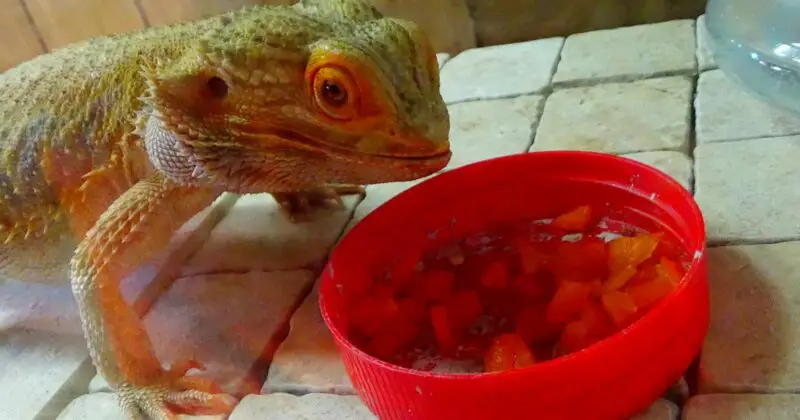
When deciding between raw and cooked carrots for your bearded dragon, it is important to weigh the advantages and disadvantages of each. Raw carrots are nutritionally superior to cooked carrots, as the cooking process can diminish the nutrient content of the carrot. On the other hand, cooked carrots may be easier to digest and less likely to cause digestive issues, but they may possess a lower nutritional value.
When feeding your bearded dragon, understanding the differences between raw and cooked carrots is essential. While raw carrots provide higher nutritional value and are more easily digested, cooked carrots can still be a valuable part of their diet if fed in moderation. Both options have their pros and cons, so it ultimately comes down to personal preference and what works best for your pet dragon.
Feeding Raw Carrots to Bearded Dragons
Bearded dragons can indeed consume raw carrots, which retain all their nutrients, thus maximizing the health benefits for your pet. To prepare raw carrots for your bearded dragon, grating them with a cheese grater or slicing them into thin pieces will make it easier for your pet to consume and digest the carrots.
There are no explicit risks associated with feeding raw carrots to bearded dragons as long as they are provided in moderation and as part of a balanced diet. Combining raw carrots with other greens and vegetables will ensure a healthy and varied diet for your pet dragon.
Feeding Cooked Carrots to Bearded Dragons
Cooking carrots can affect their nutritional value, making them less beneficial for bearded dragons compared to raw carrots. However, cooked carrots may be easier to digest and can still be a valuable part of a bearded dragon’s diet if fed in moderation.
When cooking carrots for your bearded dragon, it is important to avoid using oils or seasonings, as these can be harmful to your pet. Boiled carrots are not recommended to be used as food. They could lead to extreme water absorption and digestive disorders. Instead, opt for steaming or baking the carrots and cutting them into small chunks before serving.
Carrot Tops and Peels: Can Bearded Dragons Eat Them?
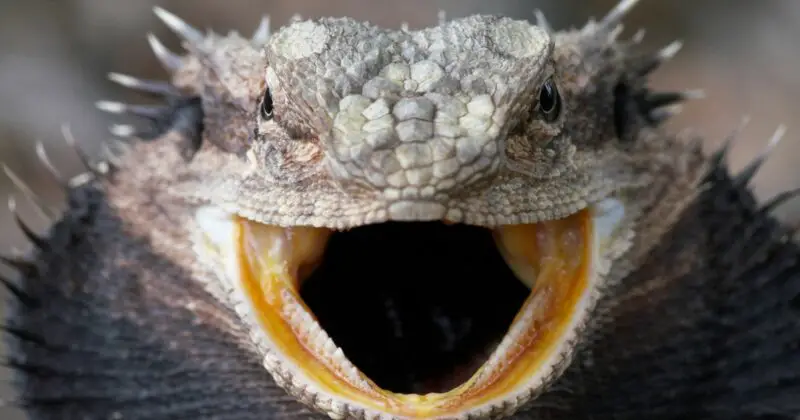
In addition to the main body of the carrot, bearded dragons can also safely consume carrot tops and peels as long as they are fed in moderation. Carrot tops are a beneficial source of vitamins A, C, and K and calcium, magnesium, and potassium. However, it is important to note that they contain oxalates, which can cause health issues if consumed in excessive amounts.
Carrot peels also offer nutritional benefits for bearded dragons, including vitamins A, C, and K, as well as dietary fiber. However, it is essential to wash the peels thoroughly to eliminate any potential pesticides or dirt before feeding them to your pet dragon. As with carrot tops, it is recommended to provide carrot peels in moderation and as part of a well-rounded diet.
The Nutritional Benefits of Carrot Tops
Carrot tops are an excellent source of nutrients that can aid in the growth and development of bearded dragons. They are rich in vitamins A, C, and K and calcium, magnesium, and potassium. However, due to their oxalate content, only carrot tops are recommended as a treat approximately once a month. When it comes to bearded dragon carrots, it’s best to stick with the tops and avoid feeding them the actual carrot.
Excessive carrot top consumption can impede calcium absorption, potentially resulting in Metabolic Bone Disease and kidney stones. By providing carrot tops in moderation and balancing them with other nutritious foods, you can ensure a healthy and varied diet for your bearded dragon.
Can Bearded Dragons Eat Carrot Peels?
Bearded dragons can ingest carrot peels without any adverse effects as long as they are not relied upon as a primary source of nutrition. Like carrot tops, carrot peels contain vitamins A, C, and K and dietary fiber, providing additional nutritional benefits for your pet dragon.
To safely feed carrot peels to your bearded dragon, follow these steps:
Wash the carrot peels thoroughly to remove any potential pesticides or dirt.
Provide carrot peels in moderation as part of a well-rounded diet for your bearded dragon.
Ensure that your bearded dragon receives all the essential nutrients it
needs.
Frequency and Quantity: How Often and How Much Should Bearded Dragons Eat Carrots?
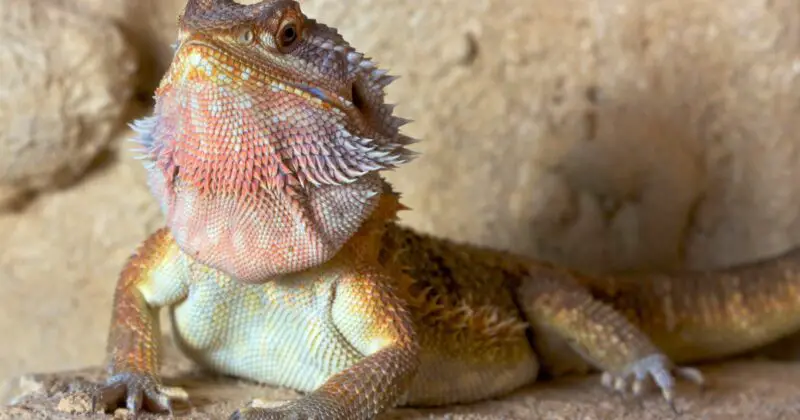
Feeding bearded dragons in small amounts of carrots is recommended once or twice a week. Carrots should be used as a garnish rather than staple food, as excessive consumption can harm your pet dragon’s health.
A balanced combination of vegetables and proteins should form the bulk of a bearded dragon’s diet. Staple Foods should be offered that are high in calcium and do not have a high amount of vitamin A. Carrots, for instance, should be avoided. This will help ensure a balanced and varied diet for your bearded dragon while providing the essential nutrients in carrots.
Feeding Carrots to Baby and Juvenile Bearded Dragons
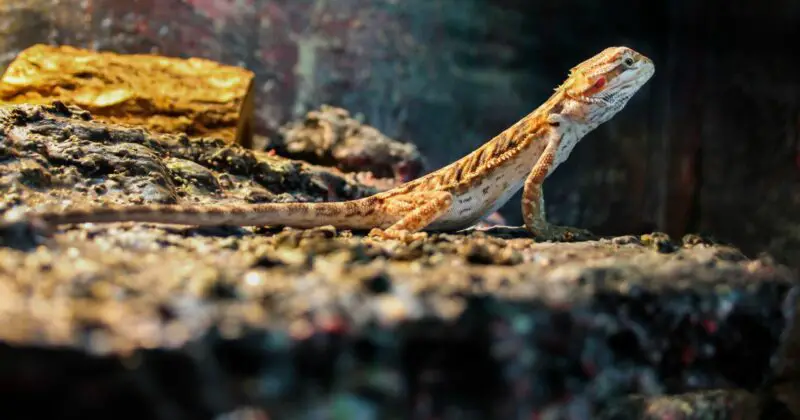
Carrots are a nutritious vitamin A and beta-carotene source for baby and juvenile bearded dragons, benefiting their immune system and vision. Baby carrots are suitable for young bearded dragons, providing essential nutrients for their growth and development.
However, baby bearded dragons should primarily consume insect protein, such as crickets, as their main dietary requirement for a healthy bearded dragon diet. They should also be offered high-calcium leafy greens throughout the day. Carrots can be consumed in moderation, complementing the primary food sources for a balanced and nutritious diet.
Preparing and Serving Carrots for Bearded Dragons
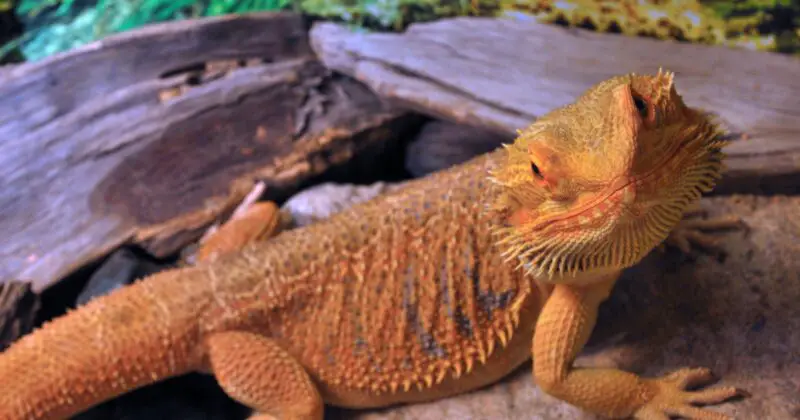
To properly prepare carrots for your bearded dragon, follow these steps:
Select healthy carrots with even skin, fresh tops, and a rich color, avoiding any spots or rotten areas.
For young bearded dragons, grate raw carrots with a cheese grater or slice them into thin pieces.
For adult bearded dragons, cook the carrots and cut them into small chunks before serving.
Mix the prepared carrots with other greens in a sturdy and shallow bowl when serving carrots to your bearded dragon. This will provide your pet with a balanced and stress-free meal, ensuring they receive all the essential nutrients they need for a healthy and happy life.
Alternatives to Carrots for Bearded Dragons
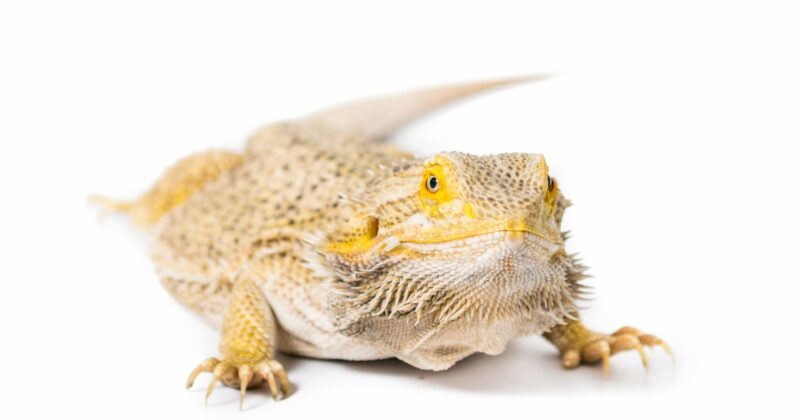
While carrots are a great addition to a bearded dragon’s diet, there are many other vegetables and fruits that can be fed to your pet as alternatives. Some examples include:
Squash
Kale
Collard greens
Turnips
Green beans
Green peas
Zucchini
Okra
Bell peppers
Cabbage
Artichoke heart
Apples
Blueberries
Peaches
Strawberries
Watermelon
As with carrots, these alternative food sources provide essential vitamins, minerals, and dietary fiber, helping to maintain a healthy digestive system for your bearded dragon.
It is important not to overfeed your bearded dragon with vegetables and fruits, as excessive consumption can cause obesity and other health issues, such as metabolic bone disease. Providing a balanced diet with various food sources will ensure your bearded dragon’s overall health and well-being.
Potential Health Risks of Overfeeding Carrots
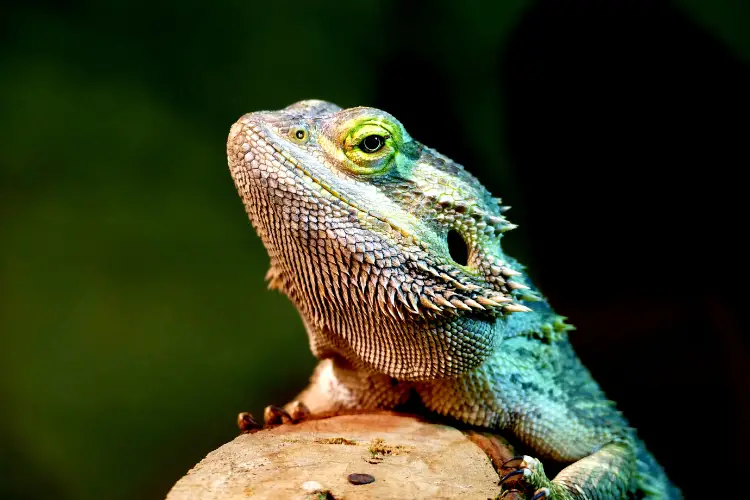
Overfeeding carrots to bearded dragons can lead to potential health issues such as:
Vitamin A toxicity
Calcium deficiency
Metabolic bone disease
Kidney stones
It is essential for bearded dragon owners to provide their bearded dragons with a balanced diet and not overfeed them with carrots or any other single food source.
Maintaining a balanced diet of vitamin A-rich foods is crucial for sustaining a nutritious diet for bearded dragons. By feeding carrots and other vitamin A-rich foods in moderation, you can prevent health complications like hypervitaminosis A, which can have serious consequences for your bearded dragon.
Summary
Throughout this blog post, we have explored the various aspects of carrots and their role in a bearded dragon’s diet, from the types of carrots suitable for consumption to their nutritional value and the best ways to serve them to your pet dragon. Carrots can be a valuable addition to a bearded dragon’s diet when provided in moderation, offering essential nutrients that contribute to their health and well-being.
Remember, the key to ensuring your bearded dragon’s health and happiness is to provide a balanced and varied diet, incorporating a range of vegetables, fruits, and insect protein. By doing so, you will not only meet their nutritional needs but also help them thrive and live a long, healthy life.
Frequently Asked Questions
Can bearded dragons eat whole carrots?
Bearded dragons can safely eat carrots raw or cooked, although they will lose some nutrients in the cooking process.
Large carrots are generally the preferred type for bearded dragons.
Can Beardies eat potatoes?
Bearded dragons can occasionally eat potatoes but should only do so sparingly. It’s unnecessary for their diet, and there are several nutritional issues to consider before giving them this food. Potatoes are high in carbohydrates and can cause digestive issues if fed too often. Additionally, they lack the essential vitamins and minerals that bearded dragons need to stay healthy.
Can bearded dragons eat eggs?
Bearded dragons can eat scrambled or hard-boiled eggs, but adults should only eat half an egg at a time.
Are carrots good for reptiles?
Carrots can be offered to reptiles as a once-in-a-while treat, as they should typically receive 80% of their diet from plants. However, they should not be fed in large quantities as carrots are low in calories and do not provide the necessary nutrients for reptiles.
Meat and meat by-products should also be avoided.
What does a bearded dragon need to eat daily?
Bearded dragons need a balanced diet of insects, fruits, and veggies. For young dragons, that typically means 80% insects/20% plants or even 50-50, while adults should eat more greens than insects, with fresh greens introduced daily.
Supplements such as waxworms or Calciworms® can be offered 3 to 5 times weekly.

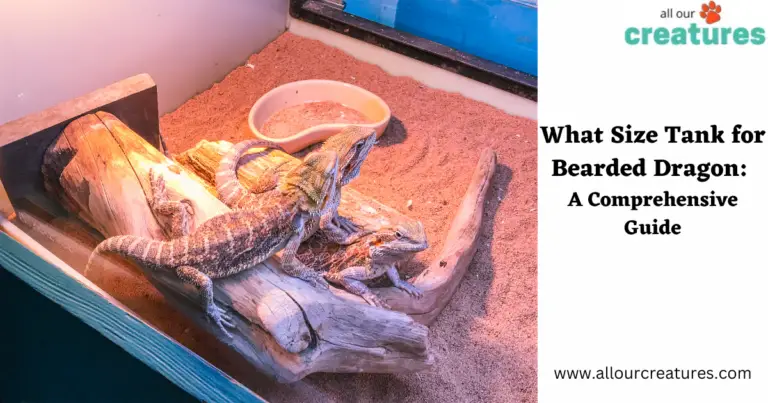
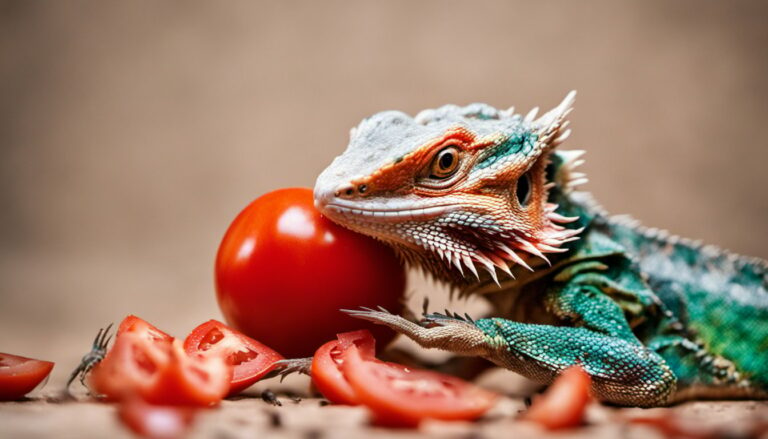
![Best Insects For Bearded Dragons [Must Read]](https://allourcreatures.com/wp-content/uploads/2021/10/bigstock-A-Bearded-Dragon-pogona-Sp-E-412949071-768x512.jpg)
![What Not To Feed Bearded Dragons? [Must Read]](https://allourcreatures.com/wp-content/uploads/2021/10/bigstock-Lizard-Next-To-Plate-Of-Food-75268150-768x512.jpg)
